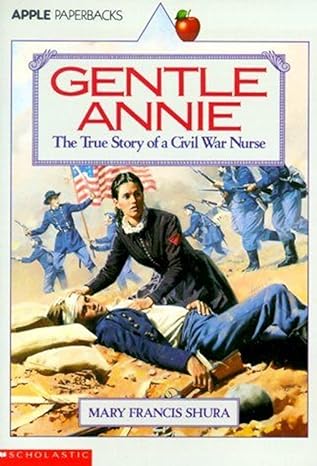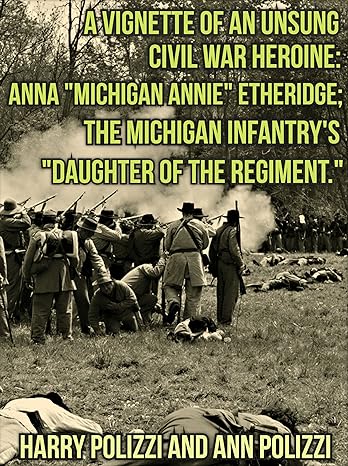Annie Etheridge
Despite lacking formal medical training, Etheridge volunteered as a nurse and joined the United States Sanitary Commission, a civilian organization responsible for providing medical and sanitary assistance to Union troops. She quickly proved herself to be a capable and dedicated nurse, earning the respect and admiration of her colleagues and the soldiers she cared for.
Etheridge's duties as a nurse during the Civil War were indeed varied and demanding. She worked tirelessly in military hospitals, often facing challenging conditions and long hours. Etheridge was responsible for providing basic medical care, dressing wounds, administering medication, and offering comfort and support to wounded and sick soldiers. Additionally, she assisted surgeons during surgeries, performing tasks such as handing them instruments and helping to prepare patients for procedures.
Etheridge served as a nurse for the entirety of the war, and even took up positions as a vivandière and Daughter of the Regiment. In addition to her regular nursing duties in the regiment’s off-field hospitals, Annie would physically enter the battlefield on horseback alongside the soldiers, providing water and medical services in the midst of battle. She was known to wear dresses constantly stained and dirtied by her work on the battlefields; her skirts – and sometimes her own body – were holed by wayward bullets; she was often seen riding on horseback, weaving between wounded soldiers; she was unafraid of walking directly in front of a pointed gun in order to reach a wounded soldier.
The 32 battles Annie participated in include some of the most notorious. She followed the Army of the Potomac through every battle, went onto the fields of the Battles of Bull Run, Williamsburg, Antietam, and Gettysburg, and she was injured in a skirmish at the Battle of Chancellorsville.
Her duties extended outside the battlefield as well, and Annie was often tasked with cooking, washing clothes, and generally providing comfort for the soldiers in her regiments. She held these positions in the Second, Third, and Fifth Michigan Infantry Regiments.
Etheridge was also deeply involved in advocating for improvements in the medical and sanitary conditions of military hospitals. She recognized the urgent need for better sanitation, hygiene, and medical care to prevent the spread of disease and infection among soldiers. As part of the United States Sanitary Commission, Etheridge worked to raise awareness of these issues and push for reforms. She documented unsanitary conditions in hospitals, wrote reports highlighting areas for improvement, and lobbied government officials and military leaders to take action.
After the war, Etheridge continued her advocacy work on behalf of veterans. She recognized the challenges faced by returning soldiers, including physical injuries, psychological trauma, and difficulty reintegrating into civilian life. Etheridge worked with veterans' organizations and charities to provide support and assistance to former soldiers and their families. She advocated for government benefits and services for veterans, including access to healthcare, education, and employment opportunities.
Annie was awarded the Kearny Cross military decoration. She remains one of only two women to have ever received this distinction.
Etheridge's efforts to improve the lives of soldiers during and after the Civil War have a lasting impact. Her advocacy helped to bring about important reforms in military healthcare and support systems for veterans, ensuring that those who had sacrificed for their country received the care and assistance they deserved.




